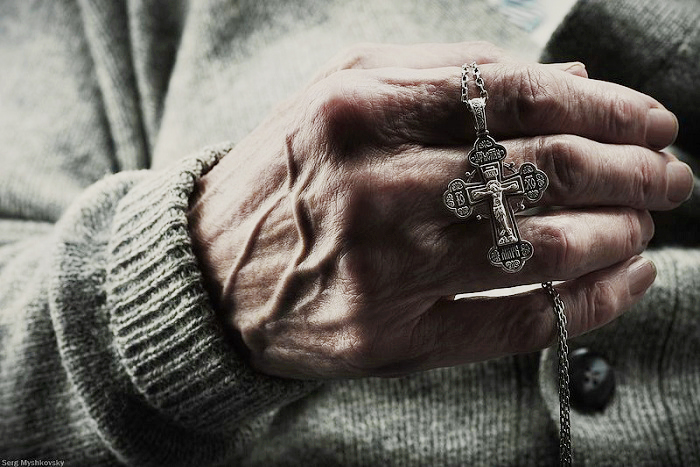
Jesus said: “And as you wish that men would do to you, do so to them. If you love those who love you, what credit is that to you? For even sinners love those who love them. And if you do good to those who do good to you, what credit is that to you? For even sinners do the same. And if you lend to those from whom you hope to receive, what credit is that to you? Even sinners lend to sinners, to receive as much again. But love your enemies, and do good, and lend, expecting nothing in return; and your reward will be great, and you will be sons of the Most High; for he is kind to the ungrateful and the selfish. Be merciful, even as your Father is merciful. “ (Luke 6:31-36)
St. John Chrysostom writes: If the Emperor had laid down a law that all those who were enemies should be reconciled to one another, or have their heads cut off, should we not everyone make haste to a reconciliation with his neighbor? Yes! Truly, I think so! What excuse then have we, in not ascribing the same honor to the Lord that we should do to those who are our fellow-servants? For this reason we are commanded to say, “Forgive us our debts, as we forgive our debtors” (Mt. 6:12). What can be more mild, what more merciful, than this precept! He has made you a judge of the pardon of your own offences! If you forgive few things, He forgives you few! If you forgive many things, He forgives you many! If you pardon from the heart, and sincerely, God in like manner also pardons you! (Preparation for Great Lent, p. 8)

Christ commands us to love one another and even to love our enemies. While some Christians thunder about God’s impending judgment of sin and sinners based on Old Testament law, rarely do they mention how those who disobey Christ’s direct commandments might be judged. If we live godly sexual lives but refuse to love neighbors and enemies or refuse to forgive those who offend us, will we be judged by God as sinners or worse than sinners? Do we imagine that Jesus Christ takes His own commandments less seriously than those of the Torah? It seems rather that Christ assumes all of the 613 laws of the Torah can be summarized in a couple of teachings:
So whatever you wish that men would do to you, do so to them; for this is the law and the prophets. (Matthew 7:12)
And he said to him, “You shall love the Lord your God with all your heart, and with all your soul, and with all your mind. This is the great and first commandment. And a second is like it, You shall love your neighbor as yourself. On these two commandments depend all the law and the prophets.” (Matthew 22:37-40)
Christians of all sorts tend to pick and chose which of the commandments of the Torah they are required to follow or face God’s judgment. But Christians do not teach it is OK to disobey or ignore the commandments of Christ Himself. So how can Christians justify focusing on Old Testamental laws about sexual morality while overlooking Christ’s direct commandments about loving others? We don’t get to pick and choose on what basis God will judge us, we can, however, determine how God will judge us by our own treatment of others.
St John Chrysostom in the above quote sees Christ’s prayer that God forgive us in the same way we forgive others (or that God treat us as we treat others) as being pretty straightforward and merciful. For in this, Christ says you are in charge of your own destiny on judgment day, because as you now treat others, you are telling God this is how you want to be treated by God on judgment day. You are telling God by your own behavior (how you treat others) how you want God to judge you! The more forgiving you are, the more God forgives you.
Something for all of us Christian to think about.
One other thought came to my mind. I remember reading many years ago about Genghis Khan and a theological “wrestling match” that he arranged. Though some of the details of this have been lost in history and the results of the debate are no longer known, apparently Genghis, who loved watching wrestling matches, had representatives of the Christian, Buddhist and Islamic faiths engage in a debate to see if any could best the rest. One rule that he laid down was that they could only speak in positive terms about their own faith. If the debaters spoke negatively about the other faiths, the penalty would be death.

Just imagine in our times if politicians and political parties at election time were only allowed to speak positively about what they would do but could not use negative advertising against their opponents. This would be a form of loving one’s enemies, and should be practiced by Christian politicians. Tell us what you are going to do and your vision, but never tell us what you fear your opponent will do. Inspire us with your good vision, don’t play to our worst fears to get our votes. I think this would improve every campaign and would certainly add a Christian dimension for those who claimed to be Christian. This type of thinking might also rid the airwaves of quite a number of talk show hosts.
Source: https://frted.wordpress.com/2018/09/29/by-order-of-the-king-love-your-enemies/



